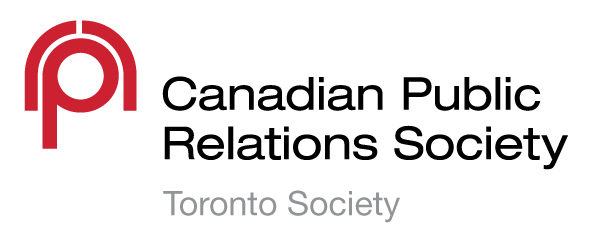Diane Bégin, APR
ruckus Digital / APEX Public Relations
If public relations would have remained what it was say 15 years ago, I would have eventually have become bored and likely would have changed careers.
The tools available today have given us the opportunity to connect directly with our audiences, no matter how niche – and for that I’m grateful, because that’s what made me stay.
Human connection is the sexy part of public relations.
PR now gives us the opportunity for real two-way connection, as opposed to the primarily broadcast, or one-way model that previously existed for decades. And it can give us a taste of what an individual is about.
My own career in public relations started around 1997 when I was working for a small business association, which was heavily weighted in government relations as a lobbyist.
By 2004 (the same year Facebook was founded), while working full-time, I began my graduate studies, which is around the time when I felt a reawakening for the profession.
I became familiar with the Toronto School of Communication.
In particular, Marshall McLuhan’s 1964 “pioneering study in media theory” Understanding Media felt very real.
“With the arrival of electric technology, man has extended, or set outside himself, a live model of the central nervous system itself.” Marshall McLuhan, Understanding Media: The Extensions Of Man
Edmonton-born, Winnipeg-raised and as an adult, Toronto-based, McLuhan became a cultural icon between the 50s-70s.
The Playboy Interview, a Laugh-In bit with Goldie Hawn called “Marshall McLuhan, Whatcha Doing?, and a cameo in Woody Allen’s Annie Hall with Diane Keaton are some of the outcomes of how dramatic of an influence McLuhan had on society at the time.
He died in 1980, but in the mid-2000s, the National Film Board – recognizing the timelessness of his thinking – released McLuhan’s Wake.
Consider the many things McLuhan said and how they continue to resonate today. Also keep in mind, a number of people at the time thought he was crazy.
“We become what we behold. We shape our tools and then our tools shape us.”
“In this electronic age we see ourselves being translated more and more into the form of information, moving toward the technological extension of consciousness.”
“A point of view can be a dangerous luxury when substituted for insight and understanding.”
“The new electronic independence re-creates the world in the image of a global village.”
“As technology advances, it reverses the characteristics of every situation again and again. The age of automation is going to be the age of ‘do it yourself.’”
“The more the data banks record about each one of us, the less we exist.”
“Innumerable confusions and a feeling of despair invariably emerge in periods of great technological and cultural transition.”
“The photograph reverses the purpose of travel, which until now had been to encounter the strange and unfamiliar.”
“Obsolescence never meant the end of anything, it’s just the beginning.”
The magic in Mcluhan’s thinking is essentially pattern recognition of the effects of all forms of media on individuals.
He realized that humans are always just humans – no matter the time period they’re in, or the media available.
The ability to be able to connect directly – and increasingly in more meaningful ways – with the “extensions of man” that we know today as social media, was the shift that I needed to realize that PR was where I continue to want to be.
